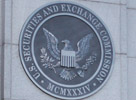
UPDATE: The SEC posted the citizen petition on its website. Here's the pdf.
…
Remember the exciting legislative victory last summer that ushered in the first-ever law aimed at shining a light on the conflict minerals trade in eastern Congo? The conflict minerals provision of the Wall Street reform bill, signed into law by President Obama in July, will require companies using tin, tungsten, tantalum, or gold in their products to file a disclosure report with the U.S. Securities and Exchange Commission, or SEC, detailing whether these materials originated in Congo or its adjoining countries. Once there’s a public record of a company’s efforts (or negligence) to source minerals from conflict-free mines, investors, advocates and concerned consumers will be able to make informed purchasing and investing decisions and mobilize around this information.
But even through the more obscure rule-making process, activists are making an impressive showing.
The SEC is in the midst of writing rules to implement the new law. The SEC is scheduled to release proposed rules on the conflict minerals provision of the Dodd-Frank Act in December. When proposed rules are released, the public will have a limited amount of time to respond before final rules are released in April 2011.
Already, more than 2,310 people have called on the SEC to ensure that the new regulations apply equally to companies that use all four minerals (tin, tantalum, tungsten, and gold), require companies in their disclosure to the SEC to provide detailed information about minerals shipment dates, volume of mineral shipments and mine capacity and define manufacture to include all companies that use conflict minerals.
Last Thursday, an Enough delegation, led by Co-founder John Prendergast, met with Mary Schapiro, the chairwoman of the SEC, to discuss the conflict minerals provision of the Dodd-Frank Act and deliver the citizen petition. In addition to the hard-copy version of the petition – a full 175 pages of signatures – the SEC also received an electronic version, which should be available on their website in the coming days.
Activists from all walks of life signed on, including respondents from law firms, consumer watch-dog groups, real-estate management companies, as well as doctors, students, teachers, retired professionals, religious leaders, and concerned consumers from 48 states and Washington, D.C. Nearly 1,000 activists included personal comments with their signature.
Here is a small selection from the many personal comments from activists describing why they signed the petition:
“It matters to me that the products I buy for my convenience do not contain minerals from regions where war, rape, and massacre are part of the mining process and the enrichment of a few at the expense of many.”
-Sue Ann Spigel, Florida
“It is very important to me that I not support companies that violate human rights, whether it be directly or indirectly. I want to know where the companies I support are getting their minerals. As a consumer, I have the right to know what I am purchasing.”
-Jennifer Vieth, Georgia
“I lived in the DRC as a kid, and I have been going back to do volunteer work in the DRC in the last few years; I think that this action is just one of the most important actions I have seen in the last 20 years to try to resolve things in the DRC.”
-Johan Six, California
“Conflict minerals are the root core of much of the violence in the Congo, particularly against women, in the region. Please do not allow weak regulations to contribute to this growing problem. We, as a democratic country, should be part of the solution….not the problem!!”
-Trish and Michael Cancilla, Illinois
“We have a right to be able to make ethical, informed decisions. Currently, consumers cannot do that. These disclosure requirements will help us make those decisions, so that we can stand up and say we will not just sit by and watch as Congo is destroyed.”
-Sarah Rings, Michigan
We still have a long road ahead to ensure that these regulations hold companies fully accountable for their supply chains, and we will be working every step of the way to ensure they are implemented in a robust and meaningful way. As we keep a close eye on how these regulations play out in the coming months, we will also be letting other U.S. decision makers – from electronics companies to U.S. government officials – know it’s time to take action. You helped pass the legislation; you are working to guarantee robust implementation of these regulations, and this holiday season, visit www.raisehopeforcongo.org/action to use your voice to keep the momentum going by taking the next Raise Hope for Congo featured action.

